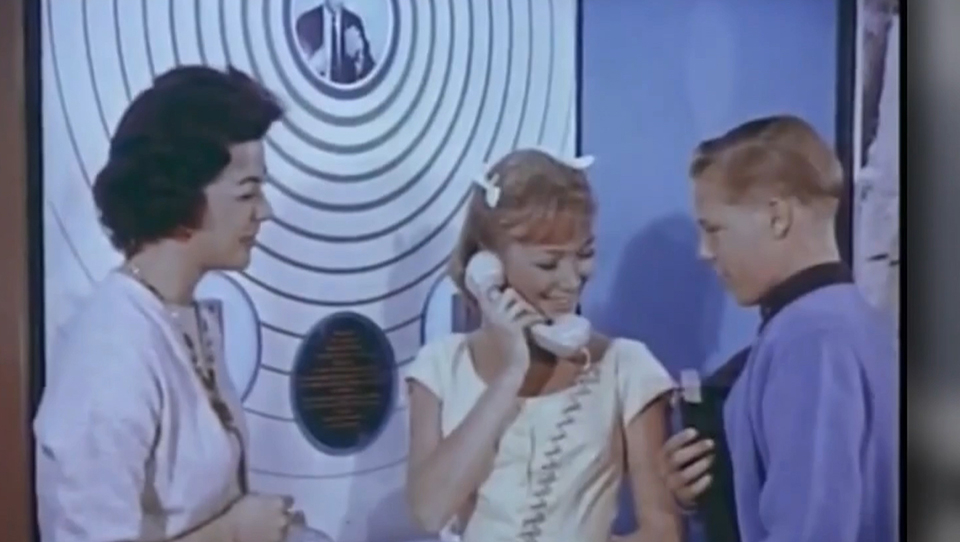03:11

Some big things have come out of Seattle. Amazon, Starbucks. And the cellphone (indirectly). They're a modern obsession: Pocket computers, communicators. With a story that links back to the city's iconic Space Needle structure.
That's because the Space Needle was the reason the cordless phone was invented. In fact, the world's first cordless phone was unveiled in this very city at the 1962 World's Fair to answer a specific need: The revolving restaurant at the top of the Needle couldn't have traditional phones in part because it turns 360 degrees. But management wanted to be able to give customers the chance to show off the fact that they were dining in such a prestigious location by calling their friends and family.
"It was a very particular and special design," explained Ed Mattson, associate director of Seattle's Connections Museum, which has the original cordless phone on display.
The model was created to allow it to be moved from table to table: "It actually worked by having a loop of wire that was embedded in the walls of the Space Needle so that way the phone could be picked up throughout the area of the space needle through that loop antenna. And then there was an operator nearby at a console who could take your call, process it and send it where you wanted it to go.
At the time, it was a complete novelty nobody had ever seen a cordless telephone before and I imagine people would have wanted one themselves to use in the house. Imagine how convenient that would be. But at the time, there was no real plan to put it into production at all.”
But the future had been spotted. And fate was about to take over. Other inventions unveiled at the space-age fair included the computer and also the world's first pager. The model was clunky – but the general idea was the same: to give people an option to be connected all the time.
And once the public got their hands on a phone that was never going to need to be attached to a wire, they lapped it up: innovation leading to innovation. Ultimately creating the cellphone which would become not just a billion dollar industry in itself, but spawn others including app stores, ride shares and social networks.
And historian Knute Berger said it gives him huge optimism about inventions of the future: "[It's] one of the ways you can't actually predict what's going to happen. the computers at this world's fair were these high things, the size of a room. And now you've got that computing power in your pocket. I think the ability of people to come up with technologies that end up being integrated into your life more than having to live in a house with all kinds of push buttons and stuff. I think that's kinda amazing. Century 22 will surprise us, I'm sure.”